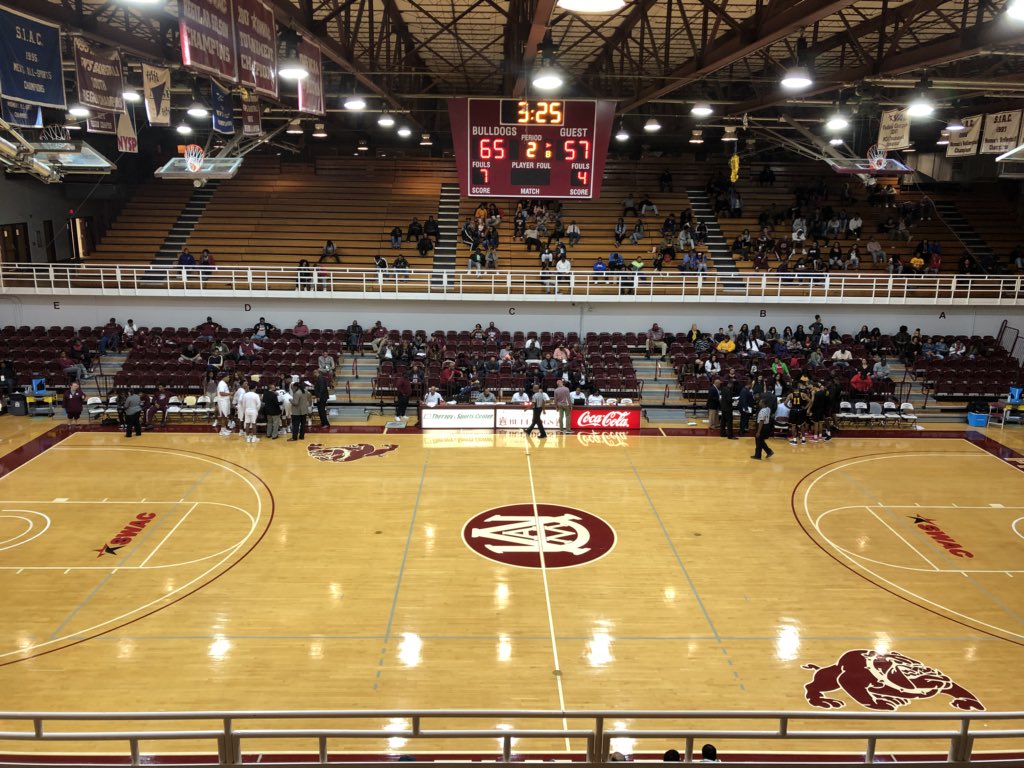On Monday night, Arkansas-Pine Bluff, Jackson State, Southern and Alabama A&M men’s basketball programs were supposed to start the third stanza of their SWAC conference schedule.
But those games will not be played because of COVID-19-related issues that have impacted schools in recent weeks.
Since the start of the college basketball season, 38 games involving SWAC men’s teams have been either canceled or postponed due to the coronavirus. Of the already 18 scheduled league games, 12 have been lost to a wave of positive tests or contact tracing.
The forecast is just as bleak on the women’s side, too. Some 28 games, including three SWAC contests, have been affected by the tentacles of the pandemic.
The MEAC has not gone unscathed either, with more than two dozen men’s games and just shy of 20 women’s games called off.
Across the Division 1 HBCU basketball landscape, 118 games since November were wiped out as a result of COVID-19.
To make matters worse, Alabama State coaches Mo Williams and Freda Freeman-Jackson recently tested positive for the virus.
The situation has become untenable. It is time for commissioners of both major historically Black college conferences to make the difficult decision to postpone the season effective immediately.
Also read: COVID-19 pandemic has HBCU programs trying to control outbreaks, play games
Continuing to play through what is a worsening pandemic not only undermines the health and safety of those connected to the sport, but it does the athletes and coaches a disservice to constantly leave them in limbo.
“You always have to preface it by saying if you have a chance to get on the court tomorrow or seven o’clock on Saturday or two o’clock, this is what we need to be prepared for,” Prairie View head coach Byron Smith told HBCU Sports last month. “It is difficult as a coach not being able to prepare as you normally would.”
North Carolina A&T coach Will Jones said he and his staff have had to work extra hard to assist athletes with coping with so much uncertainty.
The pressure of in-game expectations now pales in comparison to the strain of carefully adhering to CDC protocols 24/7 or risk placing the team in peril with one innocuous slip-up.
And even if everyone does everything by the book, that still doesn’t guarantee safety.
In a recent article published by The Daily Beast documenting the experiences of Power Five football players competing during what was a disastrous season, many expressed fear and resentment that their universities had flagrantly placed financial gains over their own well-being.
“I just think this season has really cemented the idea that the NCAA can do whatever it wants,” one unnamed player told The Daily Beast. “With teams on the West Coast having to leave their own state in order to even practice, you really wonder how anyone can believe where the priorities of those in charge lie.”
A recent study published by JAMA Cardiology revealed that 15 percent of college athletes who contracted COVID-19 had signs of myocarditis and another 30 percent featured some form of heart inflammation.
University of Florida basketball player Keyontae Johnson shockingly collapsed during a game in December. He spent several days in the ICU as a result. It was believed that the medical incident was related to myocarditis after he contracted COVID-19.
His basketball career might be over.
Do leaders of Black college institutions want to risk the long-term health of athletes and coaches by holding events when it has become candidly apparent that doing so is just not practical with the U.S. averaging 240,000 new coronavirus infections and 3,100 deaths a day?
Everyone is at risk. Everyone is vulnerable.
Leagues should follow the example of the Florida A&M women’s basketball team. The program responsibility chose to opt-out of the regular season due to a virus spike among the roster.
It is understood that basketball is profitable for universities. But this time — this one time — profit shouldn’t be prioritized over a pandemic.

